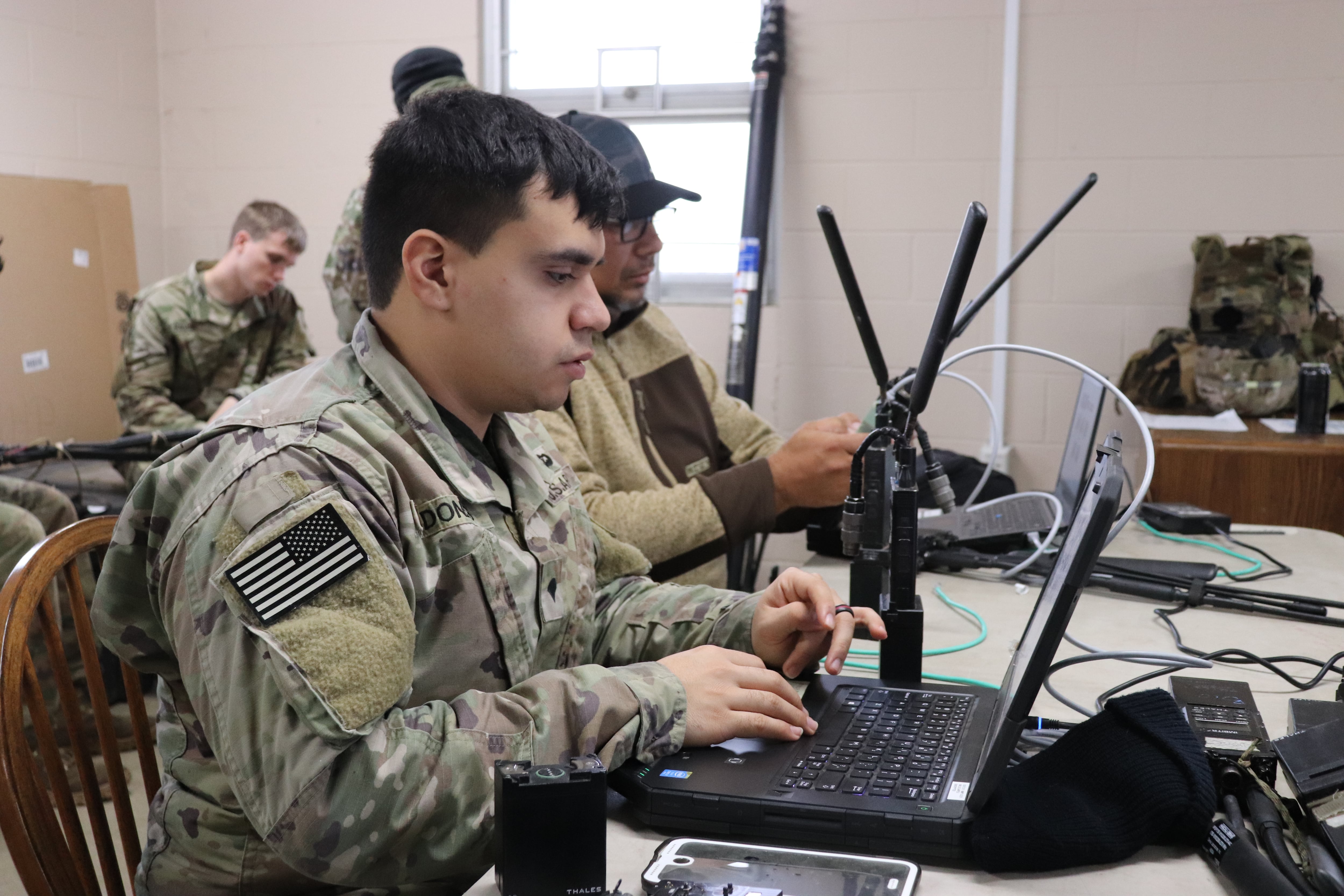WASHINGTON — The U.S. Army is looking to industry to help develop a new requirement to modernize an aging fleet of radios.
In a request for information posted earlier this month by Army Program Executive Office Command, Control, Communications-Tactical, the service announced it is weighing a new radio solution or tech upgrades for its Single Channel Ground and Airborne Radio System (SINCGARS) as part of the service’s Combat Net Radio (CNR) market research.
The service wants to learn more about industry’s capabilities in upgrading the SINCGARS radio to include new frequency hopping capabilities and cryptographic modernization, an effort that includes Tactical Secure Voice Cryptographic Interoperability Specification (TSVCIS) and Advanced Encryption Standard (AES) 256. According to the request, the radio solutions are needed for the service’s single and dual mounted vehicle radios, and personal radio manpack.
The effort is led by PEO C3T’s Project Manager Tactical Radio and Product Manger Waveforms. The Army is developing new, more resilient waveforms with industry as it prepares for future battles with near-peer adversaries. The Army plans to use SINCGARS radios to support fires and air defense in contested environments where data capabilities are limited.
“The market research effort will, in part, help inform how the Army will prioritize resourcing for potential acquisition efforts and help define requirements,” said Paul Mehney, director of communications for PEO C3T. “CNR solutions under consideration may include Single Purpose/Single Band or Single Purpose/Multiband (software defined) radio technologies. As SINCGARS modernization requirements are defined and acquisition strategies are put in place, the program office anticipates solicitation release in late 2021.”
The RFI states that Army wants to complete the modernization goal “on or before” fiscal 2024.
Responses are due Sept. 21
Andrew Eversden covers all things defense technology for C4ISRNET. He previously reported on federal IT and cybersecurity for Federal Times and Fifth Domain, and worked as a congressional reporting fellow for the Texas Tribune. He was also a Washington intern for the Durango Herald. Andrew is a graduate of American University.








